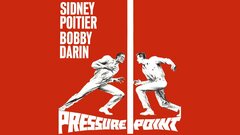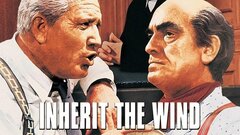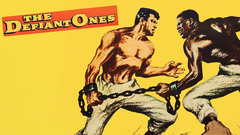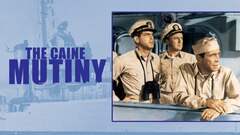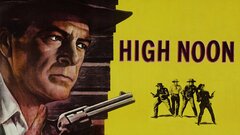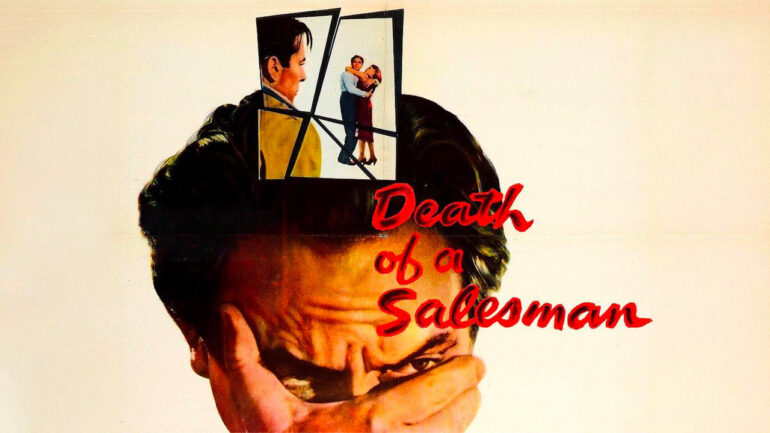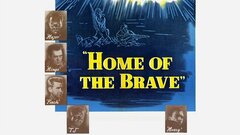Stanley Kramer made his reputation during the 1950s and 60s as one of the few producers and directors willing to tackle issues most studios sought to avoid, such as racism, the Holocaust and nuclear annihilation. He came to Hollywood an aspiring writer and hooked on with MGM, working first as a scenery mover and carpenter and then in their research department before spending three years there as an editor. He wrote for radio as well as for Columbia and Republic Studios for awhile, but it was as a strong-willed independent producer that Kramer would finally make his mark.
Though his first feature ("So This Is New York," 1948) flopped, he hit his stride with his next one, the intense and exciting anti-boxing pic "Champion" (1949), which propelled Kirk Douglas to stardom and launched Mark Robson's career as an important director.
The series of commercially successful economy productions that followed, by turns prestigious and socially responsible and all scripted by "Champion" screenwriter Carl Foreman, established Kramer as bankable in the industry's eyes. Both Robson's "Home of the Brave" (1949), which addressed the persecution of a black soldier by his white comrades, and Fred Zinnemann's "The Men" (1950), a drama about paraplegic war veterans featuring Marlon Brando in his first screen role, were melodramas with provocatively modern and relevant situations and settings.
Kramer then took a holiday from the contemporary tracts with "Cyrano de Bergerac" (1950), a film that earned a Best Actor Oscar for Jose Ferrer. By the time the last and best of these, the allegorical Western "High Noon" (1952), won an aging Gary Cooper a Best Actor Oscar (among the four it received), Kramer had already made his deal with the devil, having agreed to produce 30 films over a five year period for Columbia.
Money spoiled the look Kramer had managed to give his independent pictures. The films he oversaw for Columbia were glossier and closer in "production values" to other big-studio productions but lacked the do-it-yourself excitement of his earlier work, and all but the last one lost money. Edward Dmytryk's hugely successful screen version of Herman Wouk's "The Caine Mutiny" (1954) would cover the losses of the other nine, but Columbia had already seen enough and bought out his contract before the film's release, opening the door for him to fulfill a long-standing ambition to direct as well as produce his films.
Although his films for Columbia fell below the standards he had set on his own, most boasted fine acting and probably deserved better than they got, but adaptations of "Death of a Salesman" (1951) and "Member of the Wedding" (1952) proved too highbrow for the public while the remarkable cult children's film "The Five Thousand Fingers of Dr T" (1953), a fantasy devised by Dr Seuss, was just a little too "out there" for the times.
"Not As a Stranger" (1955), a melodramatic hospital story which critics disparaged as well-acted fluff, started Kramer's directing career off with a commercial bang, but his second film, "The Pride and the Passion" (1957), was the silliest project he ever undertook.
"The Defiant Ones" (1958), regarded by many as his best directorial effort, returned to the race card and began his ten-year run as one of the most successful (and certainly the most earnest) directors in Hollywood. Kramer then tackled the problem of The Bomb itself with "On the Beach" (1959), arranging its simultaneous release in 18 cities, including Moscow, to help save the world, before helming two courtroom dramas based on real events, "Inherit the Wind" (1960), the gripping tale of the Scopes' "monkey" trial, and "Judgment at Nuremberg" (1961), his indictment of Nazi war atrocities.
Although the subject matter addressed was always important, Kramer's excessive forthrightness stacked the deck to manipulate sentiment, causing many critics to resent his heavy-handedness, no one more than Pauline Kael who repeatedly assailed his "self-righteous, self-congratulatory" tone.
After picking up the 1961 Irving G Thalberg Award from the Academy of Motion Picture Arts and Sciences for his social responsibility, Kramer switched to comedy, giving slapstick a black eye with his overly ambitious "It's a Mad Mad Mad Mad World" (1963), before returning to the more serious terrain of Katherine Anne Porter's novel "Ship of Fools" (1995), which he dispatched in an absorbingly well-paced, tidily knit adaptation.
Of course, the audience could not possibly miss the point that the world's weakness permitted Hitler's rise since there was an urbane and sardonic dwarf (Michael Dunn) to spell it out for them, yet despite the lack of subtlety exhibited during his heyday, Kramer consistently put great acting on display.
His last big success, "Guess Who's Coming to Dinner" (1967), was no exception, offering sterling performances by Sidney Poitier, Spencer Tracy and Katharine Hepburn that overcame a saccharine screenplay which nonetheless dealt with the then relatively taboo subject of interracial marriage. Could any eye stay dry at its end when he sustained that two shot of Tracy in profile on the left foreground of the screen and Hepburn, her eyes brimming with tears, in the right background looking at the love of her life knowing full well he is not long for the world?
Of Kramer's remaining six films, "Oklahoma Crude" (1973), with its careful attention to period detail and fine performances by Faye Dunaway, George C Scott and Jack Palance, was probably the best, but after increasingly negative notices for "The Domino Principle" (1977) and the downright disastrous "The Runner Stumbles" (1979), there were no longer any studios willing to sponsor the man once regarded as the "conscience" of Hollywood.
The hostility of the critical establishment towards Kramer is no doubt to some extent a reaction against the excessive praise which greeted his early work, but there can also be little doubt that he achieved his highest quality of artistic expression as an independent producer of the late 40s and early 50s, benefiting from fine scripts by Carl Foreman and the complementary vision of his men at the helm.
Though flawed by their lack of even-handedness, his pictures as a producer-director were invariably intelligent, ambitious and well-intentioned efforts striking morally (and commercially) responsive chords for their times. In his later years, Kramer often turned up on TV interview documentaries about Hollywood's past, proving himself a lively raconteur and unabashed fan of the many talented people with whom he had worked.
In 1997, he published his memoirs, "It's a Mad, Mad, Mad, Mad World: A Life in Hollywood."

























